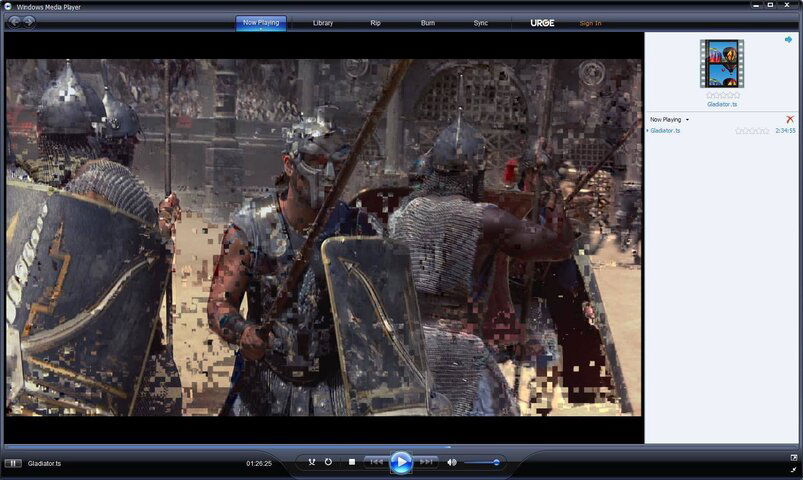Okay, lets see if I can unravel this -- for accuracy's sake. VC-1 as a compression codec is for video only. So far it is capable of compressing a two hour movie better then any compression codec out there and it can play back using a lower bitrate the movie at a comparable PQ when looking at the other two most used codecs, MPEG2 and MPEG4-AVC which use more space and require a higher bitrate for equal PQ. In the past when talking about HD it has always been shown that while you can get HD at a lower bitrate -- a higher bitrate delivers a better quality picture more consistantly. Has something change here?
However, I keep hearing that increasing the bitrate on VC-1 does not neccesarily mean better PQ. In addtion to this should there not be enough room on the HD-DVD disc for at least one lossless codec in addtion to the movie? With still enough room for some of the extras if not all? Or does the HDi also take up space on the disc thus not allowing space for a lossless codec? For HD-DVD arestudios having to decided between the movie, the audio track, the HDi and the extras when determining what will be on the disc?
All things being equal, I prefer a HD movie with a HD audio track. I did not have extras when I went to the movie theater and I have never bought a movie on DVD or BD for the extras. I think most consumers when they buy a movie do the same thing. Any extras is just frosting on the reason I purchased the movie in the first place -- I like the movie and I want the best representation possible in my home theater.
However, I keep hearing that increasing the bitrate on VC-1 does not neccesarily mean better PQ. In addtion to this should there not be enough room on the HD-DVD disc for at least one lossless codec in addtion to the movie? With still enough room for some of the extras if not all? Or does the HDi also take up space on the disc thus not allowing space for a lossless codec? For HD-DVD arestudios having to decided between the movie, the audio track, the HDi and the extras when determining what will be on the disc?
All things being equal, I prefer a HD movie with a HD audio track. I did not have extras when I went to the movie theater and I have never bought a movie on DVD or BD for the extras. I think most consumers when they buy a movie do the same thing. Any extras is just frosting on the reason I purchased the movie in the first place -- I like the movie and I want the best representation possible in my home theater.


